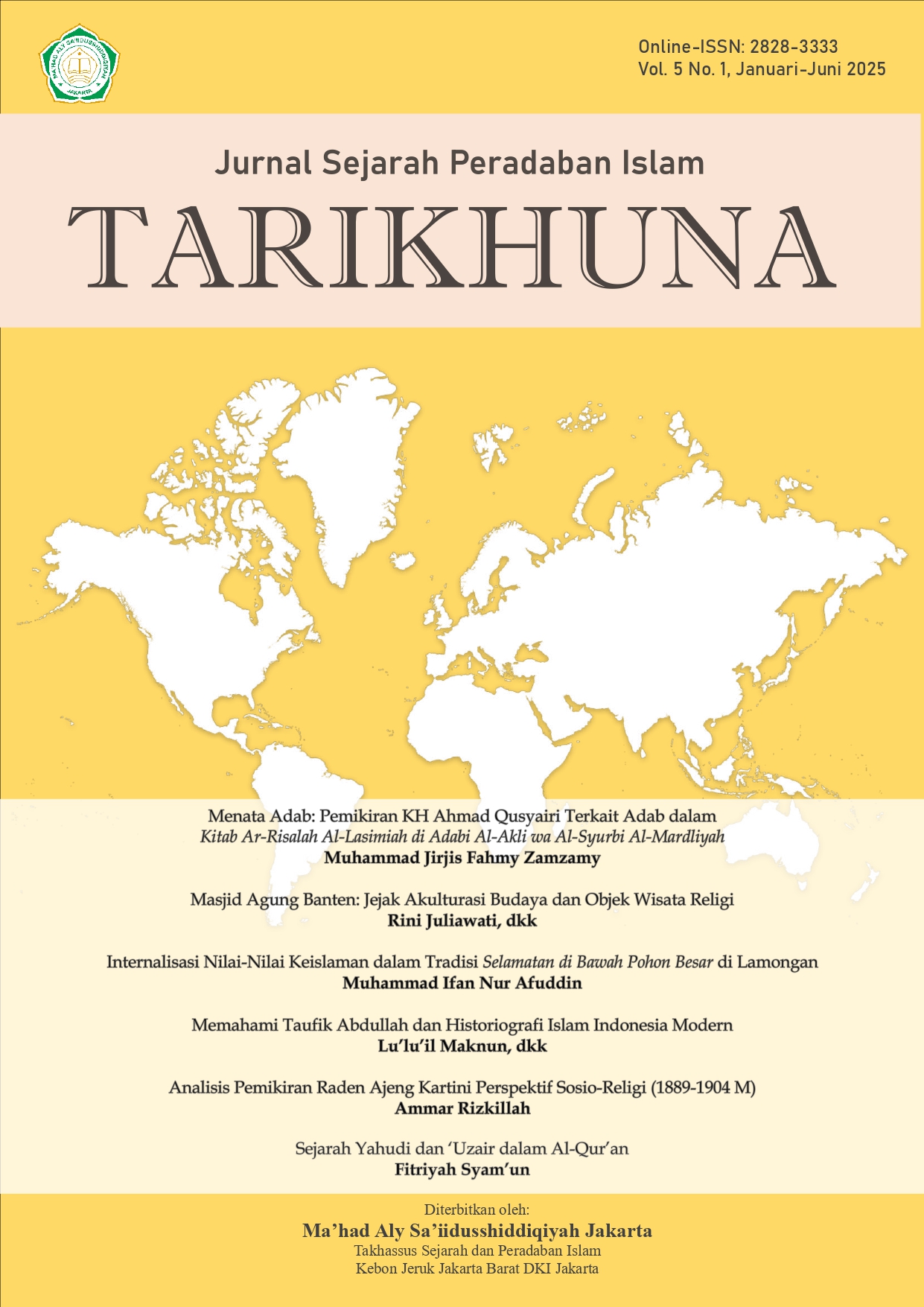Menata Adab: Pemikiran K.H. Ahmad Qusyairi Terkait Adab dalam Kitab Ar-Risalah Al-Lasimiah fi Adabi Al-Akli wa Al-Syurbi Al-Mardliyah
Kata Kunci:
KH Ahmad Qusyairi, Manuskrip, Naskah, EtikaAbstrak
The concept of adab (Islamic ethics and etiquette) constitutes a foundational element in Islamic thought, deeply embedded in both theological and practical dimensions of Muslim life. Central to this moral framework is the emulation of the Prophet Muhammad (peace be upon him) as the ideal exemplar of ethical conduct. In an effort to transmit these values to a broader audience, scholars throughout Islamic history have translated prophetic teachings into accessible moral guidelines. One such effort is found in the manuscript Ar-Risalah al-Lasimiyyah fī Ādāb al-Akli wa al-Shurbi al-Mardhiyyah by KH Ahmad Qusyairi bin KH Muhammad Shiddiq, a 20th-century scholar from Sumbergirang, Lasem, Central Java. This study aims to investigate the ethical dimensions articulated in the manuscript, with particular attention to how everyday actions—such as eating and drinking—are framed as acts of moral and spiritual discipline. Through a qualitative, text-based analysis employing a descriptive-analytical method and supported by a literature review, the study reveals how traditional Islamic ethical texts retain significant relevance in addressing contemporary moral challenges. The findings suggest that such manuscripts offer not only historical insight but also normative resources for moral formation in the present context, particularly amid growing concerns over ethical decline in modern society.
Keywords: Islamic ethics, adab, KH Ahmad Qusyairi, classical manuscript, ethical guidance





